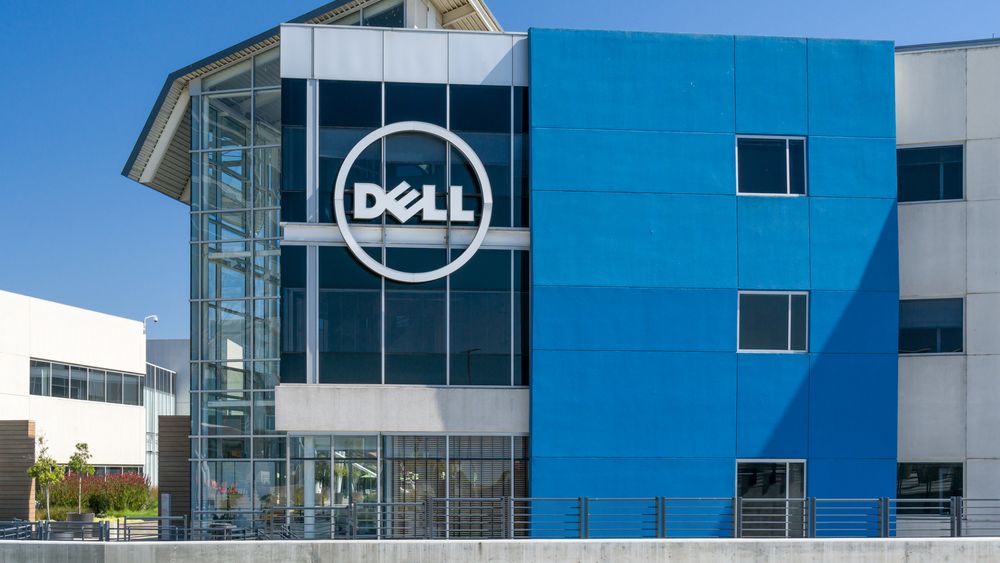What is Dell Apex?
The everything as a service (XaaS) platform comprises not just cloud but storage, servers, and AI

Rory Bathgate

Sign up today and you will receive a free copy of our Future Focus 2025 report - the leading guidance on AI, cybersecurity and other IT challenges as per 700+ senior executives
You are now subscribed
Your newsletter sign-up was successful
For as long as organizations have had IT systems, managing data across systems that are often disparate and disjointed has been a battle for IT professionals.
Over the past 15 years, many vendors have unveiled their take on infrastructure as a service (IaaS), embracing servers, storage, and various other cloud-based hardware units, packaged up and made available to organizations to pay as they go.
Among these options available to businesses is Dell Apex. The anything as a service (XaaS) project, launched in October 2020, aims to consolidate the firm’s offerings and goes toe-to-toe with HPE’s GreenLake platform. The services available range from on-premise consumption-based storage to custom cloud-based managed solutions.
What services does Dell Apex offer?
Dell Apex covers a wide range of enterprise services, including multi-cloud, AI, compute and high-performance computing (HPC), cyber security, and device services.
There are three main parts to Dell Apex’s offerings: Apex Data Storage Services, Apex Cloud Services, and Apex Custom Solutions.
Apex Data Storage Services
This is Dell’s on-premises storage as a service offering, based on Dell’s storage hardware and software portfolio. It’s customer-operated with Dell-owned and Dell-maintained infrastructure.
It features a shared responsibilities model that demarcates the roles played by the customer and Dell on a function-by-function basis. Overall, there is an application delivery strategy that enables a customer’s IT team to concentrate on day-to-day operations while Dell looks after the underlying infrastructure for the service.
Sign up today and you will receive a free copy of our Future Focus 2025 report - the leading guidance on AI, cybersecurity and other IT challenges as per 700+ senior executives
Customers find and subscribe to services in an online catalog available through the Dell Apex Console. Dell can then match services and other technology to deliver the outcomes wanted by the customer. This console offers monitoring and management of the subscribed services. Customers can create usage and spending reports, status, and predictive analytics to anticipate problems. The hardware managed by Dell can be deployed on-premises or in Equinix colocation sites.
Apex Cloud Services
This offers streamlined and reliable multi-cloud services based on VMware technology. The solution is akin to hyper-converged infrastructure (HCI) and delivers Dell Technologies VxRail as a service in a full-stack enterprise infrastructure bundle.
Dell lets administrators manage Apex Cloud Services infrastructure through its Apex Console. This is a cloud-based management tool allowing customers to oversee procurement, deployment, and even health monitoring of its deployed infrastructure. This console can be run alongside operations interfaces provided by VMware software. Apex Cloud includes:
Apex Cloud Services with VMware Cloud: This is a joint engineering endeavor between Dell and VMware that offers a scalable, flexible multi-cloud infrastructure with compute, storage, and networking delivered as a service.
Apex Hybrid Cloud: Based on VMware Cloud Foundation, this allows workload automation, and automation across the organization's entire cloud environment. Organizations can manage their own automated infrastructure, with Dell assistance in areas such as proactive monitoring and maintenance.
Apex Private Cloud: This uses VMware vSphere Enterprise Plus and VSAN to provide an entry-level infrastructure as a service with an emphasis on edge computing, remote/branch offices (ROBO), and remote locations usage.
Also, within Cloud Services, are Apex Backup Services and Apex Cyber Recovery Services. The former is a cloud-based data protection solution with a web-based console that offers visibility and management across workloads and users. The latter is a cyber recovery solution encompassing hardware, software, and service to protect critical data.
Apex Cloud Platforms
Apex Cloud platforms was announced at Dell Technologies World 2023, as part of Dell’s largest-ever Apex expansion. This is turnkey on premises infrastructure, across a range of common public cloud options including Microsoft Azure, Red Hat OpenShift, and VMware.
Alongside cloud platforms, Dell announced new support for AWS in the form of Apex Block Storage and Apex File Storage. Both allow customers to harness Apex storage solutions within their AWS environments.
Apex Custom Solutions
Dell also offers custom solutions that can be tailored to an individual business’s needs. These can be ideal for companies looking pay on a consumption basis or those with specific hardware needs.
Automated tools monitor usage to enable Dell to react rapidly to new service requests, workload variations and changes driven by business needs to enhance IT flexibility. Organisations can also customise their infrastructure based on workload to avoid over-provisioning and curb costs by paying for flexible resources as and when they are consumed. Apex Custom Solutions are available in the following options:
Apex Custom Solutions falls into two main categories:
Apex Flex on Demand: This is a flexible consumption model that enables organisations to only pay for the infrastructure they need. and provides immediate access to buffer capacity. This is available with storage, server, converged and hyper-converged infrastructure, data protection and services. It also caps billing at 85% usage of total installed capacity. Organisations can select their total deployed capacity and minimum usage commitment and at the end of the usage term, organisations can go month to month, extend the term, or return and refresh equipment. Total deployed capacity is made up of what Dell calls “Committed” and “Buffer Capacity.” Access to Buffer Capacity is instantaneous and does not necessitate a hardware deployment.
Apex Data Centre Utility: This is billed as a “highly customizable way to move part, or all, of your data centre operations into a pay-per-use model.” It couples Dell’s portfolio with professional services and support to fully manage an organisation’s data centre and its operations. Organisations receive a single-invoice monthly payment based on their actual usage. With this solution, Dell works with customer organisations to outline capacity needs and growth prospects and create a rate structure with consistent usage-based pricing. There is also automated monitoring that records actual consumption levels. This data is provided to organisation on a regular basis for review.
What are the use cases of Dell Apex?
Organizations can use Dell Apex to optimize their cloud instances and make full use of a multi-cloud approach. It’s intended to give as much or as little as users need, depending on if it’s in the hands of an enterprise with a well-established cloud presence or a firm that still has many on premise workloads.
RELATED WHITEPAPER

Specific use cases include data analytics, preparing one’s environment for AI, making use of containers, managing databases, or keeping on top of data protection.
Through its recent expansions in the public cloud space, Dell Apex is intended as an end-to-end management solution for enterprises, working well with organizations that have a presence on Microsoft Azure, VMware, RedHat OpenShift, or AWS.
As far as AI use cases go, for example, organizations can deploy image recognition capabilities among a handful of options including fraud detection and natural language processing (NLP). HPC use cases, meanwhile, include applications in public safety, personalized medicine, and structural analysis. There are plenty of other applications, too, such as data virtualization in the database component, and accelerating image processing in the container element.
What is the Dell Apex Console?
The Dell Apex Console is a web portal through which Dell customers can oversee their infrastructure and cloud plans. It is intended as a unified point of access for administrators, through which they can monitor services, manage user authentication to prevent identity-based attacks, or track cloud spending.
Businesses can get started by selecting from the central catalog which Apex services across the breadth of the portfolio they wish to deploy. They can then choose service options based on their optimal performance, and request a quote. Once subscribed, Dell claims it’ll handle everything else from set-up to the deployment of hardware to your own data center or co-location facility.
At this stage, administrators can use the Apex console to track performance metrics in order to understand the health of the service taken up. Analytics and reporting also provide visibility to scale cloud and infrastructure capacity, as needed. The Apex console also gives real-time feedback for expenses, with overall business spending better aligned with IT costs. The hub also allows businesses to add more compute instances, regardless of the services they’re subscribed to.
At Dell Technologies World 2023, the firm announced the addition of Apex Navigator, a software as a service (SaaS)-based deployment and monitoring tool for multi-cloud environments within Apex Console. Dell customers can leverage Navigator across their Kubernetes and
Rene Millman is a freelance writer and broadcaster who covers cybersecurity, AI, IoT, and the cloud. He also works as a contributing analyst at GigaOm and has previously worked as an analyst for Gartner covering the infrastructure market. He has made numerous television appearances to give his views and expertise on technology trends and companies that affect and shape our lives. You can follow Rene Millman on Twitter.
- Rory BathgateFeatures and Multimedia Editor


